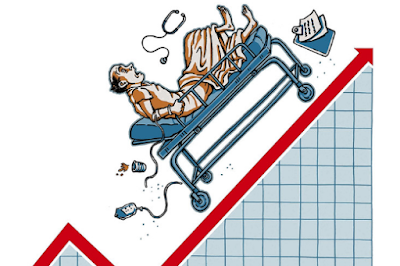There are a variety of toxins, synthetic chemicals and genetically engineered substances which could be created, to create epidemics of disease in the form of diseases caused by biological warfare. Such weapons could be used to act as a deterrent or used in reality.
There are a number of diseases which could be spread by the use of biological weaponry, which include –
1. Anthrax.
Anthrax results from an infection by the bacterium Bacillus anthracis which can occur naturally in humans and other animals in many regions of the world. The bacteria can be ingested in food, inhaled, or absorbed through the skin, so it would not be difficult to infect a population by the release of airborne anthrax bacteria.
2. Botulism.
The botulism bacterium Clostridium botulium can be taken via contaminated food or drink. The bacteria produce a substance which is toxic to the nervous system and leads to serious paralyses. This is another bacterium which could readily be introduced into a population.
3. Plague.
This disease is readily transmitted to humans by suffering a bite from infected rodents or fleas. These creatures become infected by the bacterium Yersinia pestis and pass it on to humans by either a bite or by having direct contact as would be the case with a flea. Bubonic, Septicaemic, and Pneumonic plagues are the types which affect humans.
Both Smallpox and Tularaemia are another two highly infectious diseases which could be introduced deliberately into populations. Smallpox has largely been eradicated but could readily be resurrected in a laboratory along with tularaemia to cause widespread biological diseases.
There are a number of diseases which could be spread by the use of biological weaponry, which include –
1. Anthrax.
Anthrax results from an infection by the bacterium Bacillus anthracis which can occur naturally in humans and other animals in many regions of the world. The bacteria can be ingested in food, inhaled, or absorbed through the skin, so it would not be difficult to infect a population by the release of airborne anthrax bacteria.
2. Botulism.
The botulism bacterium Clostridium botulium can be taken via contaminated food or drink. The bacteria produce a substance which is toxic to the nervous system and leads to serious paralyses. This is another bacterium which could readily be introduced into a population.
3. Plague.
This disease is readily transmitted to humans by suffering a bite from infected rodents or fleas. These creatures become infected by the bacterium Yersinia pestis and pass it on to humans by either a bite or by having direct contact as would be the case with a flea. Bubonic, Septicaemic, and Pneumonic plagues are the types which affect humans.
Both Smallpox and Tularaemia are another two highly infectious diseases which could be introduced deliberately into populations. Smallpox has largely been eradicated but could readily be resurrected in a laboratory along with tularaemia to cause widespread biological diseases.





























